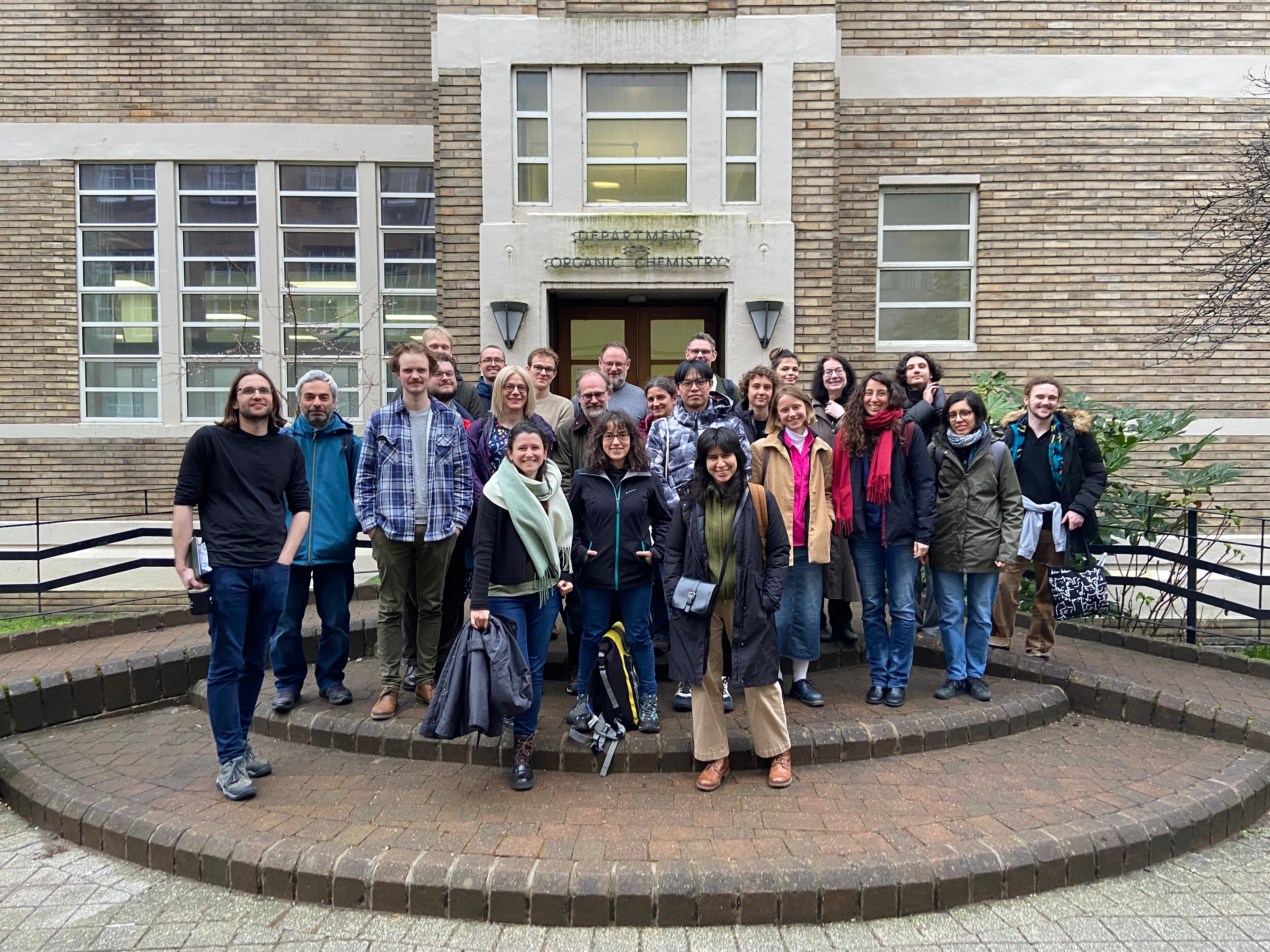
| CLAN Research Group | Upcoming Meetings | Past Meetings |
Date: Wednesday 14th February, 2024
Location: University of Glasgow
Invited Speakers:
Sofia Franchini (Lancaster University)
Bethany Rose Marsh (University of Leeds)
Marina Purri Brant Godinho (University of Glasgow)

| 11:00–11.30 | Registration and Coffee & Tea. |
| Location: Mathematics and Statistics, Room 311B |
| 11:30–12:30 | Twists and cotwists from involutive mutation. |
| Marina Purri Brant Godinho (University of Glasgow) | |
| Location: Joseph Black Building — School of Chemistry, Room C407 Abstract: An important technology in cluster theory is that of mutation, which provides a way of producing more rigid and cluster tilting objects from an initial one. Iyama and Wemyss introduced a concept which is closely related to this mutation: the mutation of modifying modules. In this talk, I will address the question of specifying precisely when the mutation of a modifying module is involutive. When this is the case, we are able to construct interesting autoequivalences called the noncommutative twist and cotwist functors. I will discuss their construction and their properties. |
| 12:30–14:00 | Lunch |
| 14:00–15:00 | Torsion pairs in the completion of Igusa–Todorov discrete cluster categories. |
| Sofia Franchini (Lancaster University) | |
| Location: Joseph Black Building — School of Chemistry, Room C407 Abstract: Given an infinity-gon having a finite number of two-sided accumulation points, Igusa and Todorov defined a discrete cluster category of type A-infinity. The completion of this category was defined by Paquette and Yıldırım. Both categories are triangulated, have cluster-tilting subcategories, and have nice geometric models: their indecomposable objects can be regarded as arcs, or limits of arcs, of the infinity-gon. These geometric models allow to classify some important classes of subcategories using arc combinatorics. In this talk we will introduce the Igusa–Todorov discrete cluster category and the Paquette–Yıldırım completion, and we will discuss the classification of torsion pairs, t-structures, and co-t-structures in the completion. |
| 15:00–15:30 | Coffee Break |
| Location: Mathematics and Statistics, Room 311B. |
| 15:30–16:30 | Reductions of Frobenius categories. |
| Bethany Rose Marsh (University of Leeds) | |
| Location: Mathematics and Statistics, Room 116 Abstract: Joint work with Eleonore Faber and Matthew Pressland. In their 2008 paper, Iyama–Yoshino introduced a reduction technique for 2-Calabi–Yau triangulated categories. This produces a new 2-Calabi–Yau triangulated category as a subquotient of the original category in a way that works particularly nicely for cluster categories. We give a reduction technique that applies to stably 2-Calabi–Yau Frobenius extriangulated categories. From this point of view, Iyama–Yoshino reduction can be recovered by moving to the corresponding stable categories. We also give an application to frieze patterns. |
| 16:30–17:30 | Flash Talks |
| Location: Mathematics and Statistics, Room 116 Matt Booth (Lancaster University) : Nonsmooth Calabi–Yau algebras. Julia Hörmayer (University of Leeds) : Finite cluster types of almost complete triangulations. David Pauksztello (Lancaster University) : Is convex geometry trying to teach us homological algebra? Gordana Todorov (Northeastern University) : Mutations of some higher cluster tilting objects. Nicholas Williams (Lancaster University) : Donaldson–Thomas invariants for the Bridgeland–Smith correspondence. |